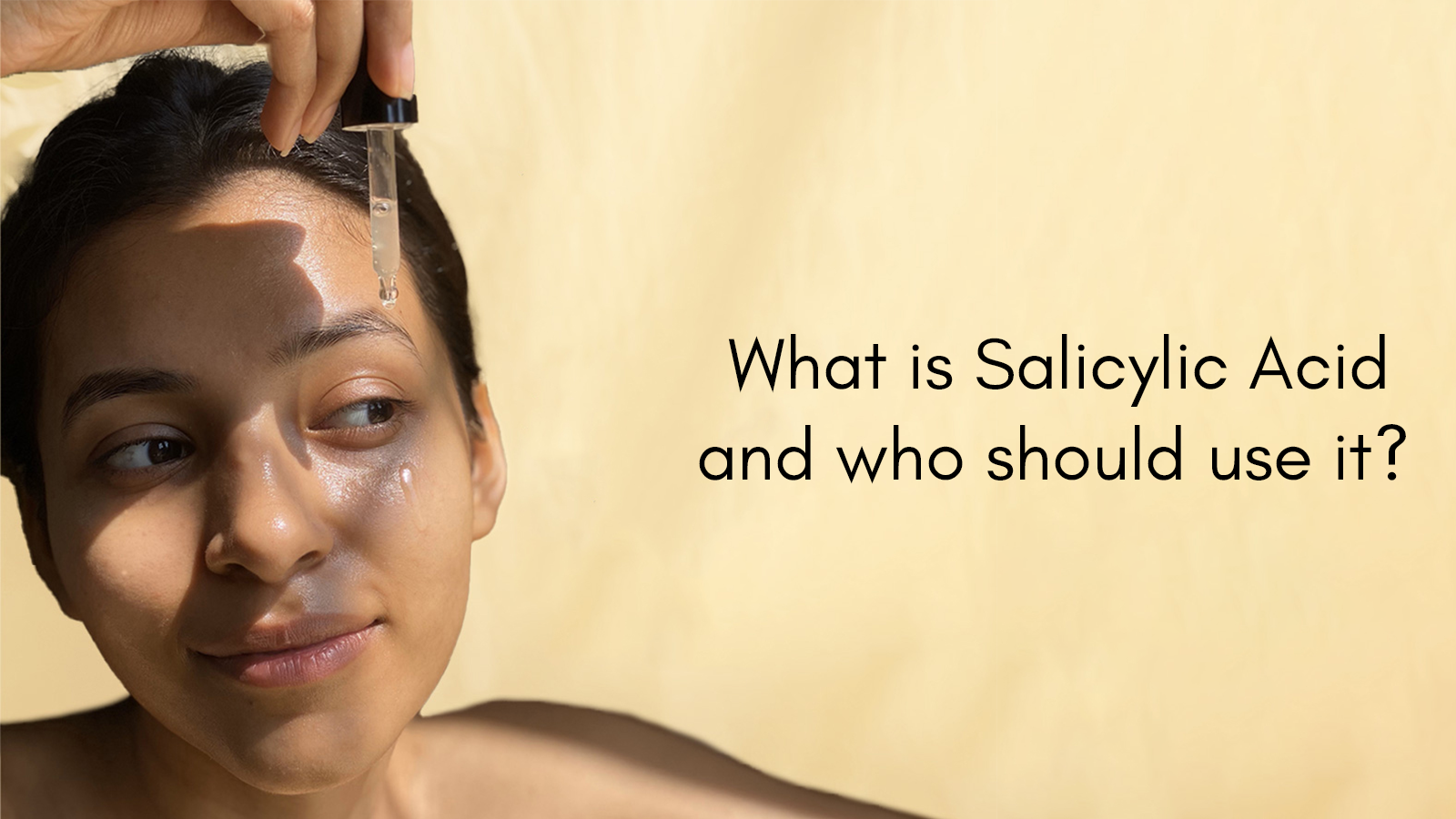
What Is Salicylic Acid And Who Should Use It?
Salicylic acid is a popular skincare ingredient known for its ability to help treat acne, exfoliate dead skin cells, and promote a clearer complexion. Here we will be discussing what exactly salicylic acid is and its many benefits.
What is Salicylic Acid?
Salicylic acid is a type of beta-hydroxy acid (BHA) that is derived from willow bark or synthetically created in labs. It has anti-inflammatory and exfoliating properties that make it an effective treatment for acne-prone skin. Salicylic acid is a keratolytic agent, which means that it works by breaking down the bonds that hold dead skin cells together, allowing them to be shed more easily.
Salicylic acid is a common ingredient in many over-the-counter acne treatments, including cleansers, toners, spot treatments, and face serums for oily skin. It is also used in higher concentrations by dermatologists to treat more severe cases of acne.
Read More: 5 Things Keep In Mind While Using Salicylic Acid
Who Should Use Salicylic Acid?
Salicylic acid is suitable for most skin types, but it is particularly beneficial for those with acne-prone or oily skin. It is also helpful for those with clogged pores, blackheads, or whiteheads. If you have sensitive skin, it's best to use salicylic acid in small concentrations such as 0.5% - 1% at first, as it can be irritating if used in high concentrations. It's important to do a patch-test of any new product before applying it to your entire face.
If you are pregnant or breastfeeding, you should consult with your doctor before using salicylic acid. While it is generally considered safe in small amounts (upto 2%), it's best to be on the side of caution.
How to Use Salicylic Acid?
Salicylic acid can be used in various forms, including cleansers, toners, spot treatments, and face cream for oily skin type. If you're using a product with salicylic acid for the first time, start with a lower concentration and gradually increase it if needed.
When using a salicylic acid product, it's essential to follow the instructions carefully. Overusing salicylic acid can lead to dryness, redness, irritation and compromised skin barrier. It's also important to wear sunscreen during the day, as salicylic acid can increase skin sensitivity to the sun.
For instance, Dig Deep Exfoliating Serum contains 2% Salicylic Acid and we advise you to use it twice a week.
Final Words
Salicylic acid is a beneficial skincare ingredient for those with acne-prone or oily skin. Its anti-inflammatory and exfoliating properties help to unclog pores, reduce breakouts, and promote a clearer complexion. However, it's essential to patch-test any new product before using it on your entire face and to follow the instructions carefully to avoid skin irritation or damage.
Love,
Sunayana
Frequently Asked Question related to Salicylic Acid
Is salicylic acid OK to use daily?
Salicylic acid is best used as directed. Daily use can be suitable for some, especially if well-tolerated. However, it's important to start slowly, monitor skin reactions, and adjust frequency accordingly.
Who should not use salicylic acid?
Salicylic acid may not be suitable for people with sensitive skin, rosacea, or eczema due to its potential to cause irritation or exacerbate existing skin conditions.
What not to mix with salicylic?
Salicylic acid should not be mixed with harsh physical exfoliants or other chemical exfoliants like alpha hydroxy acids (AHAs) to avoid over-exfoliation and irritation. Also, avoid using salicylic acid with retinol or benzoyl peroxide, as it may cause excessive dryness and irritation.
What is the best combination with salicylic acid?
The best combination with salicylic acid is a gentle moisturizer containing ingredients like hyaluronic acid or aloe vera.
What percentage salicylic acid is best?
For most people, a salicylic acid concentration of 1% to 2% works best for skincare. It effectively treats acne and exfoliates without causing irritation.
Leave a comment
This site is protected by hCaptcha and the hCaptcha Privacy Policy and Terms of Service apply.